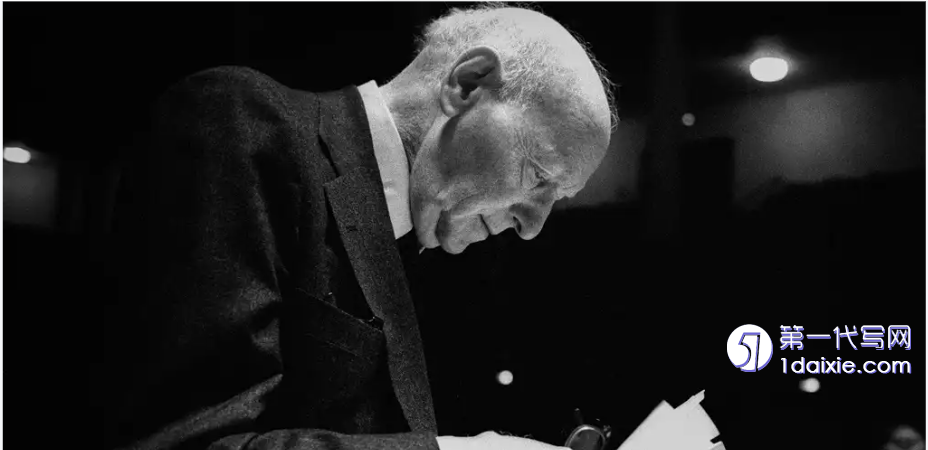本文是一篇英语论文,笔者认为辛格笔下的犹太生存困境并非其民族的独有的际遇,而是深刻映射出人类的普遍处境。本论文不仅有助于丰富辛格作品于存在主义视阈的研究,还试图激发当代人对自由、生存处境和责任的思考,激励人们成为积极行动的自为存在。
Chapter One Oppression of Absurd World
Ⅰ.Holocaust as the Pinnacle of Anti-Semitism
The Holocaust represents the culmination of anti-Semitism and stands as one ofthe most absurd events in human history.Jews were trapped in a hostile and irrationalworld,stripped of their agency,subjected to brutal suffering,and compelled toconfront the futility of their struggles for survival and dignity.
The Holocaust can be traced back to the rise of anti-Semitism.Anti-Semitism is amodern term generally believed to have been coined by the German modern writerWilhelm Marr,but historical phenomena with an“anti Semitic”nature can be tracedback to the Egyptian era of the Hebrews.The history of Jews being forced into exilearound the world after the complete failure of two large-scale anti Roman uprisings in70 AD and 135 AD,lasting for nearly two thousand years.After the rise ofChristianity,for a considerable period of history,exiled Jews were endowed with thecharacter and identity of“evil”in the comprehensive context of Western Christianculture,and anti Semitism became a universal historical and cultural phenomenon inWestern history.In the 19th century,there was a new and comprehensive developmentof anti Semitism in Europe.The spontaneous anti Semitic movements that constantlyemerged in the past often evolved into organized and planned large-scale movements.Anti Semitism also developed from religious discrimination and persecution in theMiddle Ages to racial discrimination and persecution.In the 1930s and 1940s,antiSemitism reached an extreme level.Sartre pointed out in his Anti-Semite and Jew thatmany people in the West have pathological anti Semitic quirks:even without contactwith Jews,they still believe that Jews are bad.“The Jew contaminates even the air he breathes”(Sartre,1948:24).

Ⅱ.Belonging Dilemma of Immigrants in Post Holocaust Era
Following the Holocaust,many Jews fled Europe in search of new sanctuaries,with the United States becoming one of their primary destinations.Between 1881 and1924,approximately 2.5 million Eastern European Jews immigrated to the UnitedStates,which became their new refuge.However,even in this land perceived as the“land of freedom”,Jews faced significant challenges in integration.Immigrants notonly had to contend with language barriers,economic hardships,and cultural shocksbut also had to reconstruct their identities under the shadow of anti-Semitism.
Life in the metropolis was vastly different from the closed,backward smalltowns of Eastern Europe.The urban life of New York was filled with mechanicalclamor and an unfamiliar order.In Enemies,Jadwiga,a Polish peasant woman,wasutterly bewildered by the multi-line public transportation system,and the sounds ofspeeding trains and cars frightened her.“Her ears were deafened by the noise andclamor;everything vibrated and shook before her eyes”(Singer,2021:9).She waseven unable to live independently due to her inability to communicate.She spoke onlyrural Polish and had to draw three small circles as a substitute when signing her name.Her husband,Herman,suggested she attend English classes,as otherwise,she wouldbe confined to loneliness at home in New York.However,English classes were notdesigned for those who did not even know the English alphabet.Even the simplestEnglish pronunciations were difficult for Jadwiga.This was the reality for manyimmigrant-they lacked language skills and had no foundation or opportunity to learn.
Chapter Two Anxiety of Survival
Ⅰ.Crisis of Jewish Identity
The Jewish identity crisis,as a central component of the spiritual dilemma of thenovels’characters,profoundly reveals the complexity of identity.In the long course ofhistory,Jews have experienced countless migrations,persecutions and reconstruction,which makes their identity full of contradictions and struggles.On the one hand,inthe midst of racial discrimination and persecution,the merciful God did not showsigns of extending a helping hand to his chosen people,but rather stood by andwatched with cold eyes as the Jews suffered,causing them to question the beliefs ofJudaism and the traditional culture;on the other hand,they had to face assimilationfrom the mainstream society.This tearing of identity leads to serious confusion anduneasiness in the self-perception of many characters.
1.1 Collapse of Faith from God’s Silence
The tragic history has cast doubt on Jewish faith.Belief in Judaism is animportant symbol of Jews.The Ten Commandments of Moses are the core of Jewishteaching,the first of which is“Do not call on any other God”,and only Jehovah,orGod,is the only true God in the universe.The Jews believed themselves to be thechosen people of God and sincerely obeyed Jewish teachings,but they did not waitfor God’s reward.They were forced into exile and mass murder for a long time.Thishistory made some Jews begin to waver in their faith,and even question the existenceof God and abandon God.On the question of“whether God exists or not”,Singervacillates between belief and doubt.He sometimes believes in God and sometimesdoubts his existence.This is especially evident in the novels Lublin and Enemies,which are one of the themes of religion.The protagonists can not find any trace ofGod helping the Jews,and the existence of God is self-contradictory.Some charactersassert outright that God does not exist.Sartre’s existentialism blossomed around thesame time that Singer wrote these two novels,so it can be assumed that Singer wasinfluenced by existentialism.
Ⅱ.Alienation in Personal Relationships
Whether in romantic,family,or work relationships,the characters constantlycompete for dominance through mutual look,alienating others’freedom in the nameof love.
Sartre’s theory of the Other demonstrates that the Other’s look alienates“being-for-itself”into“being-for-others”,plunging the subject into a predicament ofdeprived freedom.He posits that the relationship between the self and others occursthrough the“look”.The Other can not be reduced to a mysterious or self-evidentexperience as previous philosophers have suggested;rather,the Other is revealed to usin the mundane reality of everyday life.In this world,I exist as a being-for-itself,butwhen the look of another falls upon me,under their scrutiny,I become abeing-for-others.I am fixed.While I enjoy my freedom,I coincidentally encounter thelook of others upon me,which results in“them grasping the secret of my existence,they know what I am;thus,the profound meaning of my existence lies outside ofmyself,confined to my absence”(Sartre,2007:323).Consequently,my existenceflees from what it originally was,or rather,within my subjectivity,I negate theexistence that is externally imposed upon me.I am inevitably ensnared by the threatof others'freedom.The fundamental contradiction between my self-perception andthe transformation imposed by others causes me distress and unease.In the play NoExit,Sartre vividly expresses the view that“the Other is the root of conflict”.Theconcept that“Hell is other people”(Sartre,1976:47)directly points to the alienationin interpersonal relationships.
Chapter Three Free Choices of Individuals......................38
Ⅰ.Choice of Bad Faith.........................................40
1.1 Magda’Suicide out of Despair................................41
1.2 Herman’s Seclusion as Evasion.............................43
Conclusion.....................................57
Chapter Three Free Choices of Individuals
Ⅰ.Choice of Bad Faith
Magda and Herman,overwhelmed by the unbearable weight of absolute freedom,lapse into bad faith.Although it alleviates temporary anxiety,it leads them away fromthe existential essence of“freedom is responsibility”and towards a self-destructiveoutcome.
The recognition of the fact that one is absolutely free and responsible will bringpain,so it’s natural for anyone to try to escape this.For Satre,this is bad faith:theattempt of consciousness to cheat itself.There involves two kinds of lies:it means notonly lying to oneself,but also lying to one’s freedom.Most people deceivethemselves to hide the fact that they are free.In Sartre’s view,bad faith can beexpressed in various forms,which can be basically divided into three types:the firsttype is to see oneself only as existing for others,and voluntarily play and accept therole of existence imposed by others or society.The reason why I become such aperson is completely according to the requirements of the Other,refusing to face up tothe fact of free choice in the situation.The second type is the denial of the freedomand transcendence of the self,confounding itself with the unconscious,free,andresponsible being in itself.The third type is the so-called“serious spirit”,whichmeans that people regard value as an absolute thing,and set various goals forthemselves,to passively obey it,in order to escape their free planning and choiceresponsibility.Sartre is against bad faith,because it will make people unable to faceup to the responsibility belonging to themselves.Not only does man have thenecessity of free behavior as an existence for himself,but also the absoluteness andreality of the corresponding choice of value.

Conclusion
Isaac Bashevis Singer uses the art of passionate narrative,rooted in the culturaltraditions of Polish Jewry,to vividly depict the human condition with universaldimensions.In The Magician of Lublin and Enemies,a Love Story,Singer’s Jews livein a world of contingency,struggling desperately to escape the oppression of theexternal absurd world and the anxiety of the inner spirit,while attempting to establisha tense,inner balance between the culture they brought with them from the JewishOld World and the culture they draw from the New World.As a result,they live in astate of uncertainty and contradiction.The Jewish existential dilemma depicted bySinger in the novel coincides with Sartre’s existentialist philosophy.Therefore,basedon Sartre’s existentialism,this thesis applies the theoretical foundations of absurdworld,existence before essence and free choice to analyse and interpret the existentialdilemma prevalent in the novel.
Firstly,this thesis analyses the Jews’being in an absurd world where crises occurfrequently.The absurdity of the world is manifested in two main ways:rampantanti-Semitism and a new world that is difficult to integrate.Sartre points out that theanti-Semite is caught in a hopelessly self-deceiving and inauthentic situation.Anti-Semitism is a fear of mankind itself,and Jews are accidentally chosen by suchanti-humanism.The racism experienced by the Polish Jews in the novel reaches itspeak in the Holocaust,and it is difficult to escape the brutal shadow left by Nazitorture.They struggle to escape to the United States,known as the“land of free”,butstill face enormous challenges in hiding their identities and integrating into the newsocial environment,including language barriers,economic restrictions,culturaldifferences,and even the rise of anti-Semitism.At the same time,there are alsodifferences and frictions within the Jewish immigrants in terms of culturalbackground and sectarian differences.
reference(omitted)
